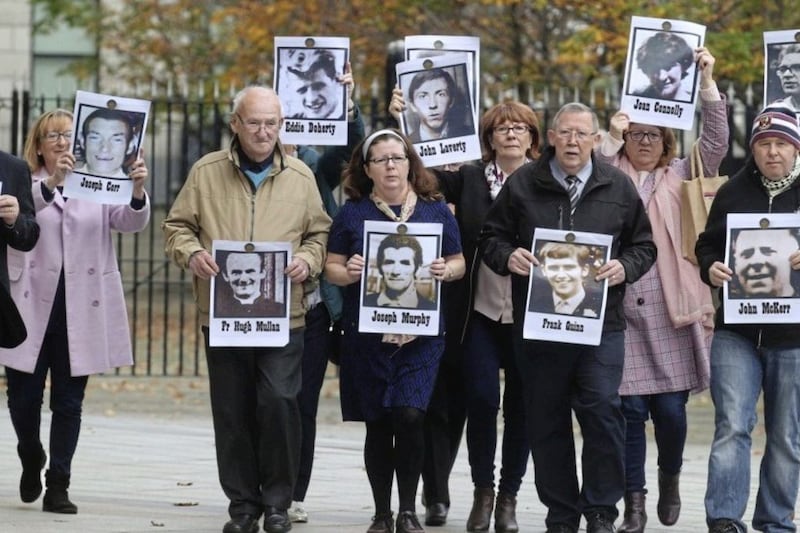A mother of eight and a Catholic priest were among 10 people fatally wounded in disputed shootings involving the British Army in the Ballymurphy area of west Belfast between August 9-11 1971.
The scenes came at a chaotic time across Northern Ireland following the controversial decision to implement internment without trial in response to the start of the Troubles.
Here are those who died...
Edward (Eddie) Doherty (31)
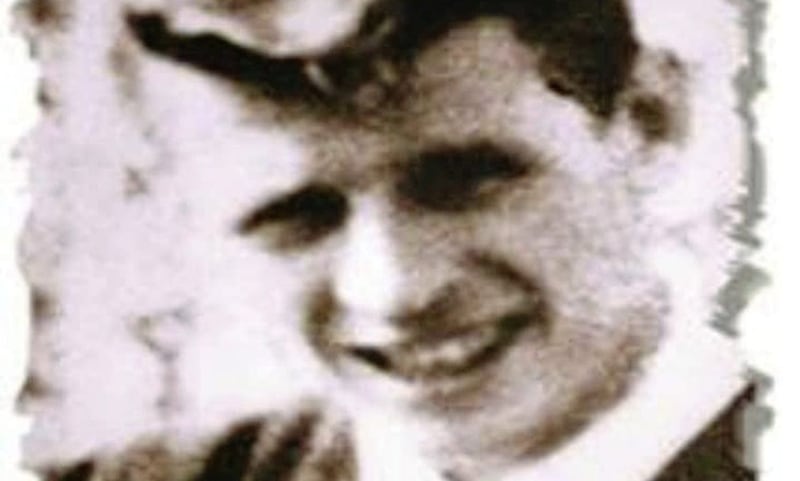
His father was a soldier in the Royal Engineers, later joining the Territorial Army, as did Eddie and his older brother Tommy. His sister, who lived in England, married a soldier.
When he was six months old he was buried under the rubble of his home when it was damaged in the Blitz.
His Kathleen McCarry remembers a "popular, good hearted" child.
"He was very giving and would have done anything for you. There was always a smile on his face. I never saw Eddie in a bad mood and he always had time for you."
He went on to become a pioneer, blood donor and member of the Confraternity, a prayer group for men at Clonard Monastery.
In 1962 he married his wife Marie and they had three sons and a daughter and from 1968 began working boarding up buildings that had been damaged in the Troubles, working nights as a barman to earn extra money for the family, who were living in Iveagh Street.
"It was just an ordinary family life and he just loved Marie, he idolised her and she could do no wrong in his eyes," his sister said.
"All he had time for was work, home and the confraternity.
"He was content with what he had and he was in his own wee orbit that he owned his house, and provided for his kids he was just happy to be a husband and a daddy."
- British soldier who shot Eddie Doherty 'still thinks about him'
Joseph (Joe) Corr (43)
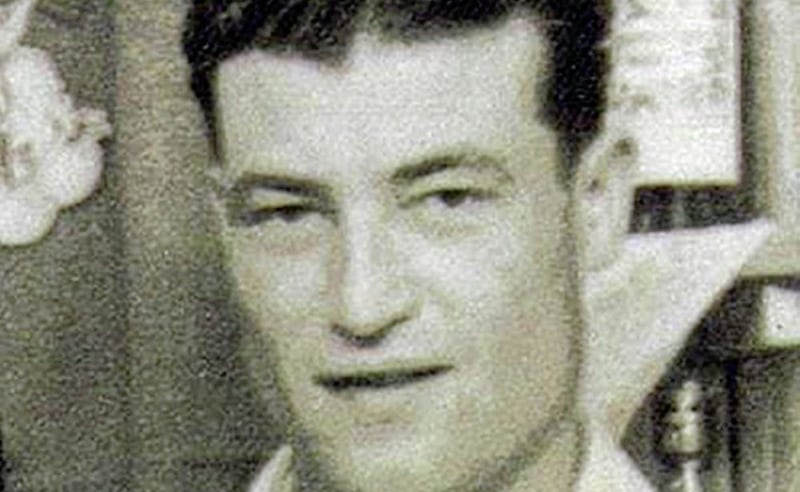
The father-of-seven had moved to Ballymurphy with his wife Eileen and family from the `Loney' area off Falls Road.
He worked nights in the Shorts aerospace company as a machinist and would make the children porridge and get them ready for school while his wife was at her full-time work as a domestic in the Royal Maternity.
His children remember him "doing all the housework... all the washing and cleaning" and he also took on part-time jobs like window cleaning for extra cash.
Daughter Eileen McKeown said "ours was a very happy home".
"Like many in the area, my daddy brought the soldiers tea when they first came, my daddy knew my sister was going out with a soldier."
The family were "in the process of moving to Australia", following his brother who had already emigrated, when he was killed.
"Our lives changed completely, we went from a family with two working parents to only having one parent left behind with seven kids who still had to work to make ends meet," Mrs McKeown said.
British Army briefings to the media were that Mr Corr was an IRA gunman.
Not long after he died, a letter believed to be from some Shorts workers was sent to his widow saying: 'May your sub-human husband and his pals roast in hell'.
John Laverty (20)
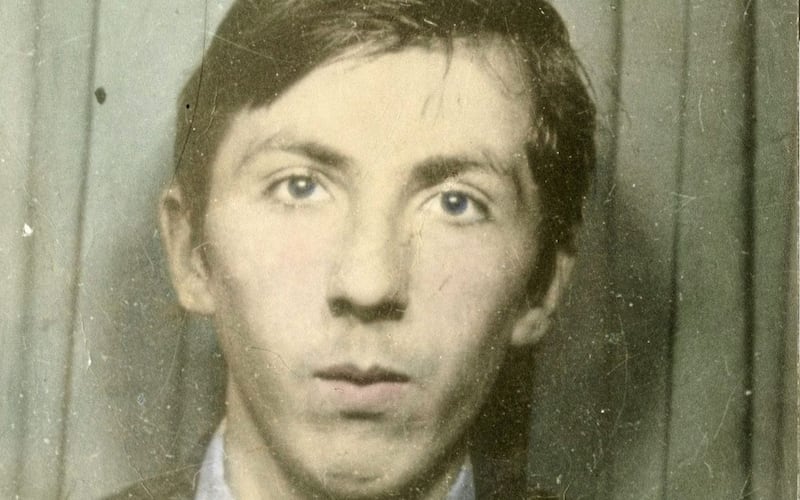
Named after his uncle who fought in World War II, he "was a kind, loving child who grew up to be a six-foot tall laid-back, easy going lad".
A loving son, brother and uncle, he would look after his sister Tilly's two daughters so she and her husband "could get a night out" and call into his brother Tommy's house to see his niece every Saturday.
His youngest sister, Carmel Quinn, remembers "John would carry me on his shoulders" to the Clonard Novena with the rest of the family.
A tee-totaller, he gave his mother most of his wages from his Belfast Corporation job, with a little set aside to bet on horse racing.
When women and children were being evacuated from Ballymurphy in the days before the shooting, John helped his sister Sue (24) take the youngest two children.
"I remember having a real sense of fear," Mrs Quinn said.
"John told me that it would be alright. I was only going on a holiday and when we come home everything would be ok again. We got on the bus and left. Our John stood waving to us until we couldn’t see him anymore.
"Unknown to us, this would be the last time we would see our beautiful brother."
He was 20 years old.
Joseph 'Josie' Murphy (41)
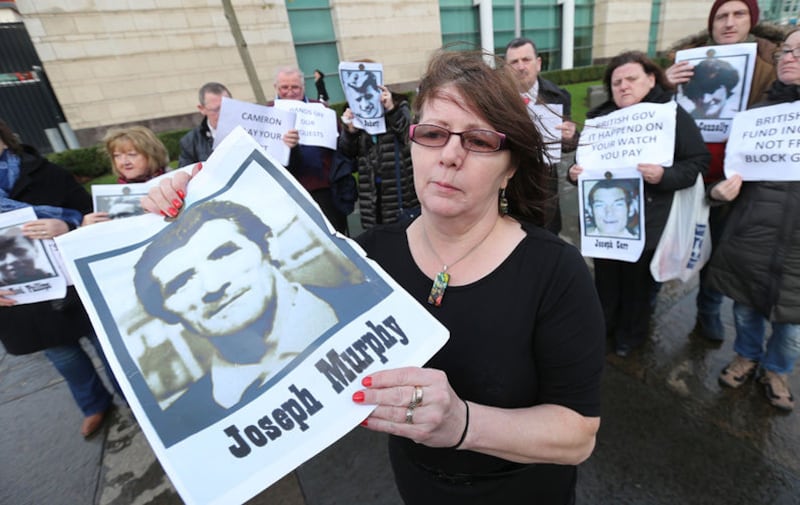
The son of a British Army veteran, he was a keen amateur boxer in his youth, fighting for Immaculata Boxing Club.
He and his wife Mary suffered tragedy, losing three of their 12 children in infancy and early childhood, his youngest son Hugh was only 18 months old when Joseph died.
His youngest daughter Angela remembers "my daddy used to do handstands up against the door and walk on his hands across our living room".
Mr Murphy made "an honest living as a rag-and-bone man" and Angela remembers he "used to buy my mummy boxes of chocolates because they had beautiful bows wrapped around them. All colours, purple, yellow, red, orange, Mummy was well chuffed, but he bought them because he wanted the bows for my long black hair".
"I remember my daddy going out on the day he was shot. We were all upstairs and I can remember running to the landing and shouting `Daddy where are you going' and him saying `a wee message'. I asked him to give me a kiss and stuck my head through the bannister of our stairs and he kissed me."
Mr Murphy's children remember standing outside their house on the day of his funeral and soldiers in an "open-topped Jeep" stopping outside at gate and singing `Where's your papa gone', a popular song in the charts at the time.
Noel Phillips (19)
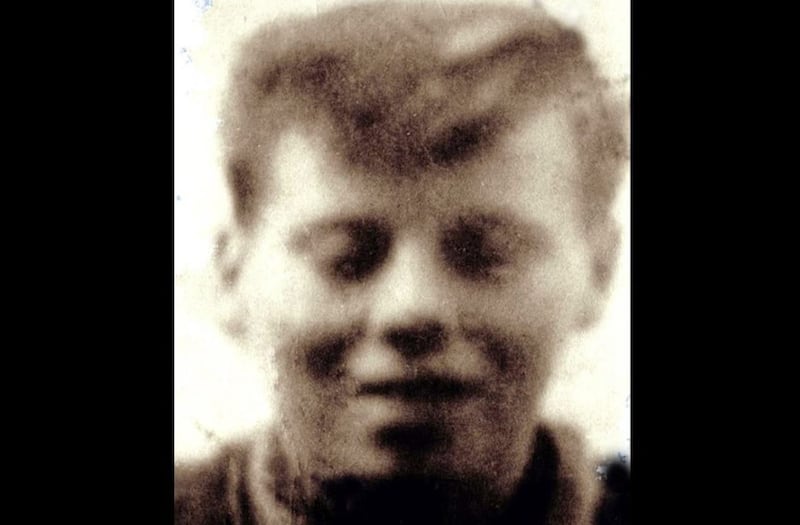
Noel Phillips worked as an apprentice barman for a while after leaving school, something which his family believe may have put him off drinking himself.
He went on to become a window cleaner.
His younger brother Kevin recalled how "he loved his style".
"He was a fanatic about his dress, he was always in his Wranglers and was very conscious of his appearance. He was a complete hygiene freak."
The brothers played football together as children, and Noel Phillips "loved sports, handball and swimming things like that".
"He was so quiet and sedate, really easy going and got on with everybody. No one could say a bad word about him everybody liked him," Mr Phillips said.
He was 19 years old at the time of the shootings and "doing what anyone would have done at that age if you heard trouble you would go for a nosey, that's all he was doing".
His brother said Noel "was trying to make his way home through Springfield Park at the Manse field when they shot him".
"We missed out on a good brother, a good friend and companion, he could have got married and had a family of his own, his whole life was ahead of him but we were robbed of that, it’s hard to put into words what we missed out on.
"He missed out on all our families, weddings, birthdays and all the nieces and nephews, they have missed out on the best uncle."
Joan Connolly (44)
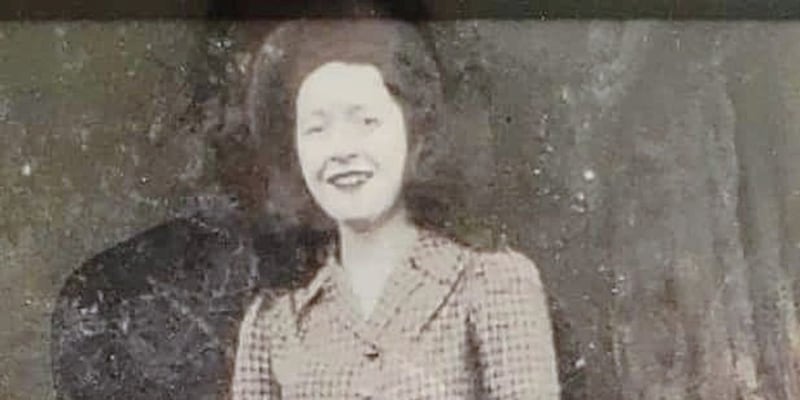
The seventh of eight children, Joan Connolly went to work in `the Mill' after leaving school.
She met her husband Denis - a 6'6" fluent Irish speaker who had come from Monaghan to Belfast looking for work - at a dance.
The couple had eight children, the youngest, Irene, just three years old when Joan died.
They lived in a mixed community on north Belfast's Shore Road with "lovely neighbours" until the family outgrew their small bungalow and they moved to Ballymurphy.
Her daughter Briege Voyle said Joan "loved a wee smoke and a game of bingo and used to go to bingo a couple of nights a week", and as a 12-year-old would help her get ready, "putting a couple of rollers in my mother's hair and comb it out for her".
Joan Connolly was "shocked by the start of the Troubles (when) people were getting burnt out of their homes in the Lower Falls... she just couldn’t get her head around it".
"When the army came in my mother thought this was the best thing," Mrs Voyle said.
"My mother was out making the sandwiches and the tea for the soldiers and thought they were there to protect us. Soldiers used to come every night and she would have made them sandwiches and tea and had a yarn with them."
Her eldest daughter Denise married a soldier and went to live in England and Mrs Connolly would visit him when he was stationed at Flax Street Barracks.
On August 9, concerned at unrest around the Henry Taggart army post she went "to get her daughters Briege and Joan into the house".
- Paratrooper recalls finding the body of grandmother Joan Connolly
Frank Quinn (19)
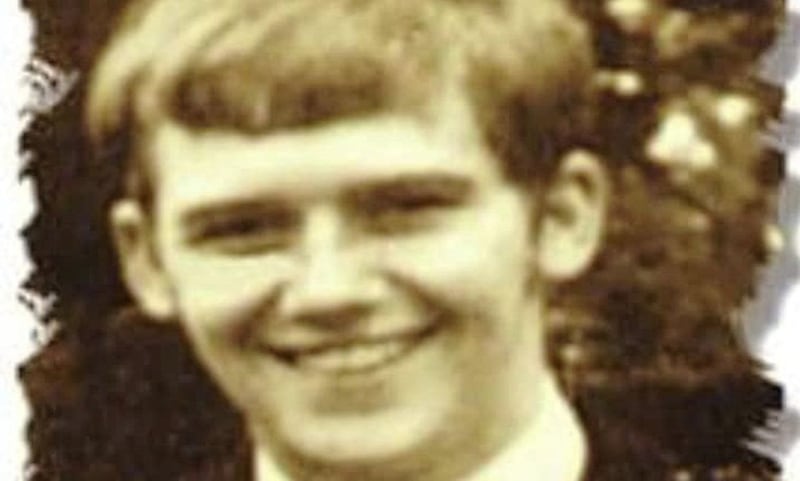
Known for "his popularity, huge smile and good looks", Frank Quinn was "well known in all parts of Belfast and could adapt anywhere with anyone of any religion".
He was 15 when he met his wife Anne and 17 when they married, with "two children and a thriving family life" at the time of his death two years later.
His family said before marrying Anne "he never had any problem getting the girls around the dances", something they put down to the fact "he was very much into his appearance" - he was renowned for "always keeping one eye on a mirror at all times".
The teenager made sure his mother kept his Wrangler jacket and jeans crease-free.
He was "very generous always throwing a pound or two to the rest of his family if they were short", as long as he had enough money for "a few cokes and two burgers for himself and Anne" at dances.
Frank and his father and brothers had a Friday night ritual of going to Keenan's bar for a drink and across the street to the bookies to put a bet on the horses and dogs.
He worked for his father as a home repairer.
Hearing reports a priest and another man had been killed his mother, unaware it was her son, said: "Some mother has a sore heart tonight."
Fr Hugh Mullan (38)
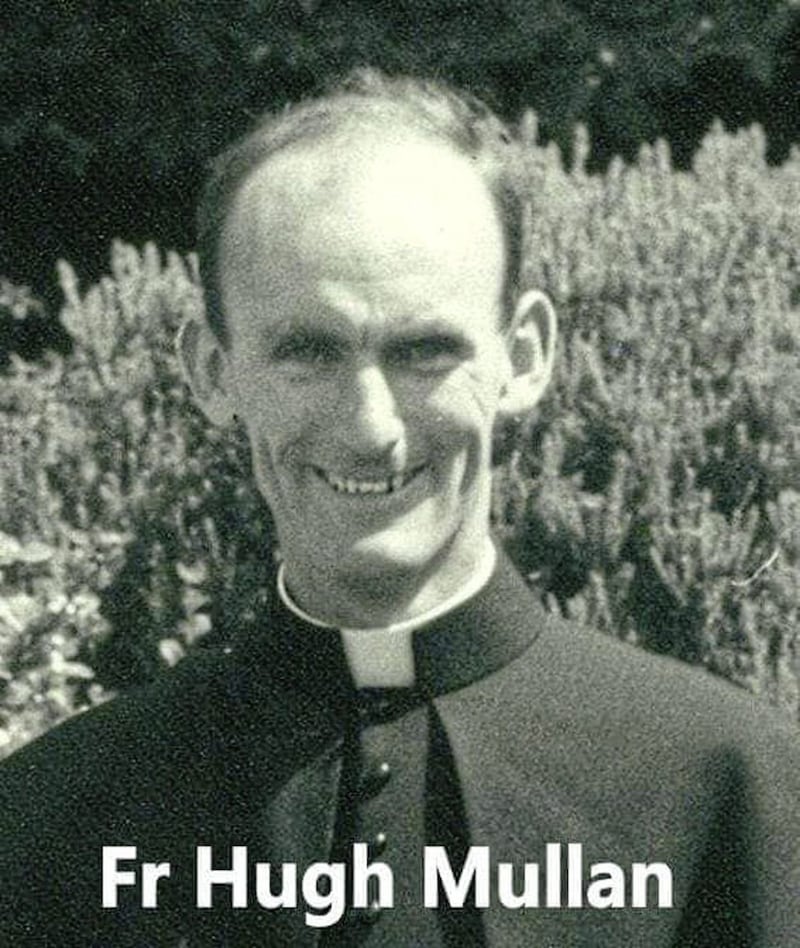
Portaferry-born Hugh Mullan joined the priesthood after serving in the Merchant Navy for a year.
Patsy Mullan remembers his older brother as being "always very helpful and kind", helping build a parish hall in Dunloy, "doing whatever he could and whenever he got the time".
During his time at the Good Shepherd Convent he would play guitar and sing to the children", something he would also do for family and friends.
His niece Geraldine McGrattan said he was "never critical, always positive, always wanting the best for you" and remembers him as a regular visitor, playing guitar and duetting with her mother.
A very strong swimmer, he loved sailing on Strangford Lough and his cousin Gabriel Ellison's earliest memories of him in Portaferry was Hugh "bringing us clams from Strangford Lough to cook on top of our range".
He saved his little cousin when, while "sailing my small toy boat off the slip in Portaferry", Mr Ellison slipped into the water.
"I couldn’t swim so I went under... Hughie ran out of his house and jumped in after me and pulled me out. I was surely gone only for his super actions."
Ms McGrattan said the move to a new parish "was always a family occasion, my dad borrowed a mini bus and fill it with uncle Hugh's possessions and me, my brother and my two sisters as well as my mum and granny and off we would go to help him move in".
"I would see how much his parishioners appreciated all he did for them and how much respect they had for him, but also how they genuinely enjoyed his company and he theirs."
- Ballymurphy inquest hears evidence from former soldier who heard dying priest pray
Daniel (Danny) Teggart (44)
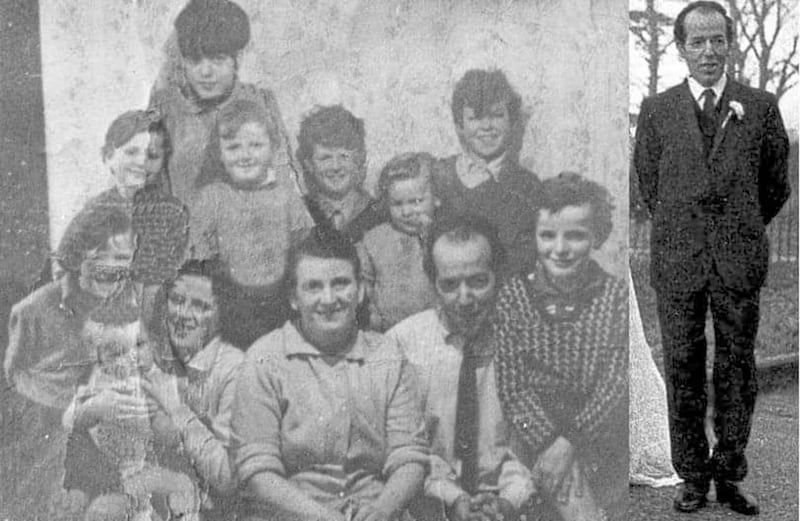
Daniel Teggart left school at 14, in common with many others in the 1940s, getting first job in a butcher's shop on Donegal Pass, later working at a packaging company making paper bags.
Aged 18 he met his wife Belle (17) at the Clonard picture house, and they married two years later, their first marital home one of three rooms rented above a fish shop in the Markets area.
Danny would break up sticks and sell them around the streets, also working as a `rag and bone' man and cleaning windows for "all the big stores" in the city centre to bring in extra money.
When they had 10 children and another on the way they got their first home at Westrock Drive in Belfast, ultimately going on to have 13 children - "all steps and stairs" - and moving to New Barnsley in 1970 after Protestants left the area.
His "work and love for his family and their welfare" was balanced with his "great sense of humour and mischievous pranks".
He "loved to socialise with his brothers" at the weekends in Falls Road's The Clock Bar, with "a little bet on the horses along with a pint of Guinness".
Danny Teggart had been in Ballymurphy that day to ask his daughter Alice Harper if she and her husband could shelter his brother whose family home had been damaged in the disturbances.
He had been "all delighted" when Mrs Harper told him she was expecting a baby and after taking her infant son to give her "some rest" had asked her to give him a haircut.
"I cut his tight black curls and brushed the hair up and put it into a wee horse and cart ornament.
"Little did I know that I would later identify him in the morgue by those same black curls."
John McKerr (49)
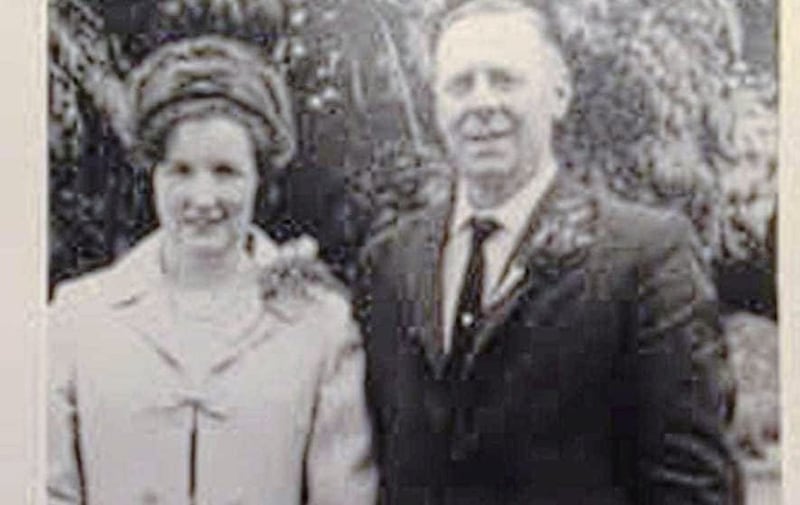
A 49-year-old former British soldier, who lost his right hand in World War II, John McKerr had an adapted prosthesis which allowed him to attach his tools - mostly a small steel hammer - to work as a joiner.
He had served in the Royal Engineers and his eldest daughter Anne Ferguson said her father "was proud of his military career and was a member of the British Legion".
The father-of-eight had four grandchildren at the time of his death and one of his sons had served in the Royal Navy.
Mrs Ferguson said they had been brought up to "live and let live".
The family discovered he was critically injured after his daughter Maureen read it in The Irish News as she waited for a lift to work: `A Willie John McKerr had been shot and wounded in the Whiterock Road area the day before'.
She showed the newspaper to her mother and "can remember Mum's screams to this day".
Mr McKerr had been working at the church and was asked to stop while the funeral took place of a young boy who had drowned while fishing.
It was misreported at the time he had been attending an `IRA' funeral.
He was leaving work at the church on August 11 1971 when he was shot, dying in hospital a week later.
Mrs Ferguson said her sister remembers "before the funeral, a general or a major from the British Army came and apologised to our mother".
Read More
- Mother tells Ballymurphy inquest how British Army bullets narrowly missed her children
- Ballymurphy inquest: Teen beaten so badly doctor 'thought he'd been run over by bus'
- Military-grade ammunition 'used to shoot victims'
- Gerry Adams critical of IRA membership questions at Ballymurphy inquest
- Ballymurphy inquest told 'anyone could be shot'
- GAA club 'in shock' over revelation Paras used man's skull as ashtray
- Paratroopers 'showed great restraint' in Ballymurphy
- Anger after claim Paras had sweepstake for 'first kill'
- British soldier tells Ballymurphy inquest it was 'possible' he killed somebody







